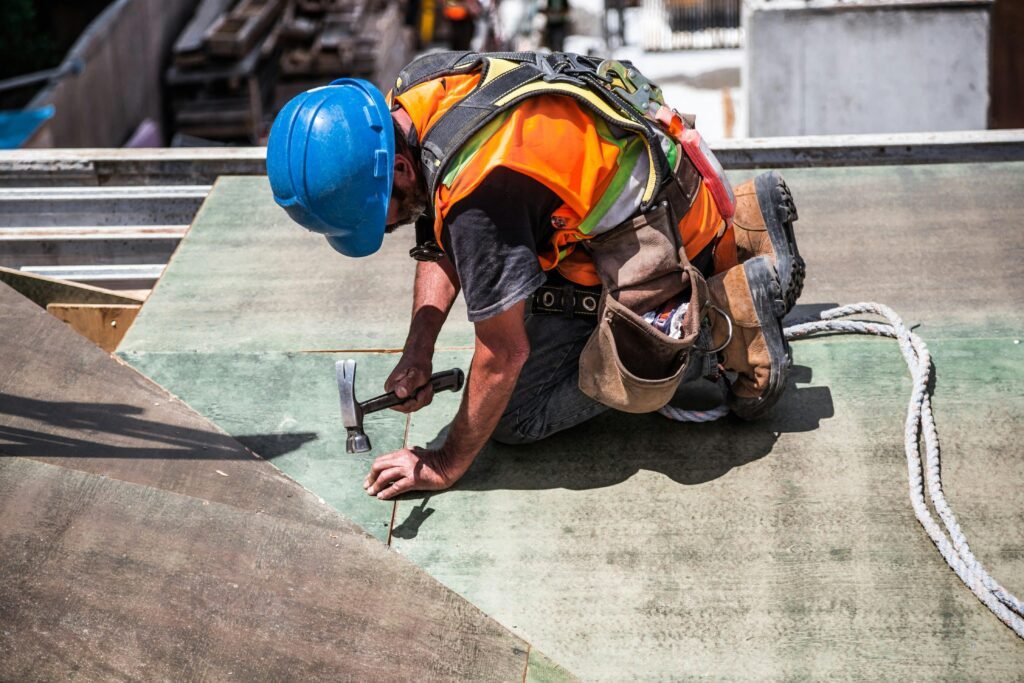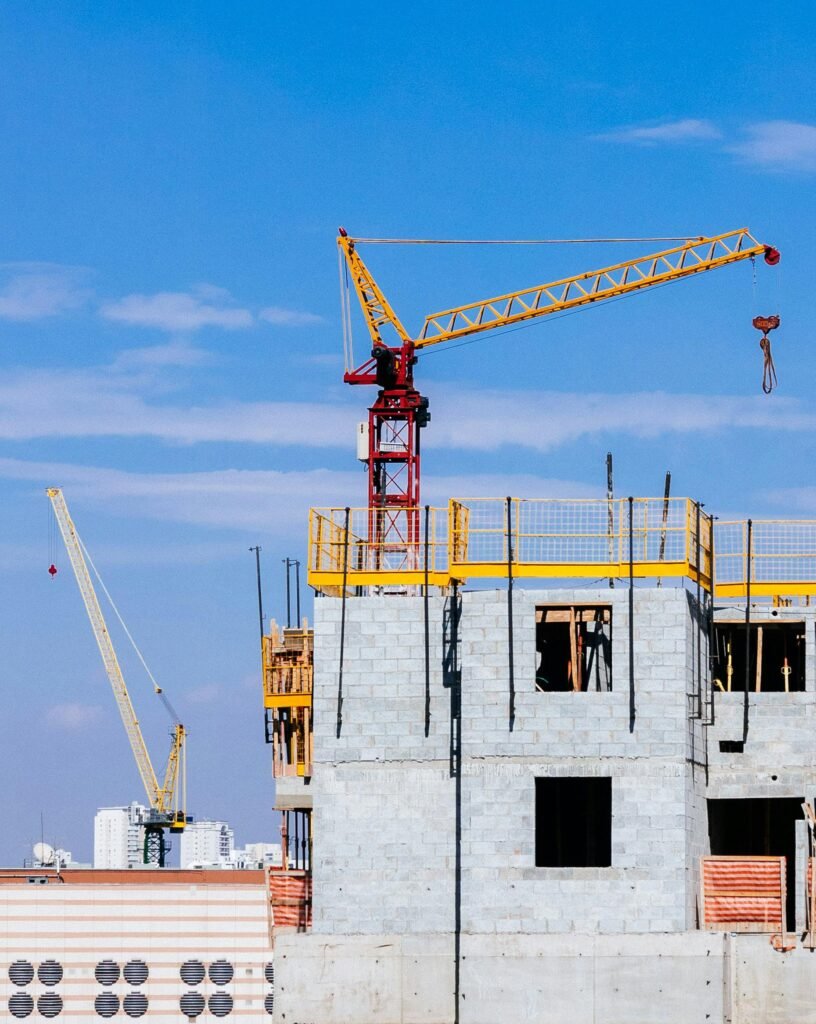Are you tired of struggling to connect with construction project stakeholders in Kenya? Building strong relationships with these key players is essential for success, but it can sometimes feel like an impossible task. However, fear not! With the right strategies and approach, you can establish and maintain strong relationships with construction project stakeholders in Kenya. By understanding the stakeholder landscape, effectively communicating, collaborating, addressing concerns, and building trust, you can create a solid foundation for successful projects. So, get ready to revolutionize your stakeholder relationships and unlock new opportunities in the construction industry in Kenya.

Understanding the Stakeholder Landscape
To understand the stakeholder landscape in Kenya’s construction projects, you need to identify and analyze the key individuals and organizations involved. Identifying key stakeholders is crucial for successful project management and effective stakeholder engagement strategies. In Kenya, construction projects involve various stakeholders, including government agencies, local communities, contractors, suppliers, and non-governmental organizations (NGOs).
Government agencies play a significant role as stakeholders in construction projects, as they provide permits, regulations, and approvals. Local communities are also important stakeholders, as they can be directly impacted by construction activities. Engaging with community leaders and conducting community consultations can help address their concerns and ensure their participation in the project.
Contractors and suppliers are key stakeholders involved in the construction process. Building strong relationships with them is vital for timely project completion and quality construction. Regular communication, collaboration, and establishing clear expectations are essential for effective stakeholder engagement.
NGOs are another important stakeholder group. They often work closely with communities and can provide valuable insights and expertise in areas such as environmental impact assessments, social responsibility, and sustainable development. Collaborating with NGOs can help mitigate potential conflicts and ensure the project aligns with social and environmental standards.
Effective Communication Strategies
You can strengthen your relationships with construction project stakeholders in Kenya by implementing effective communication strategies. Active listening is a crucial component of these strategies. When engaging with stakeholders, make sure to give them your full attention, demonstrate empathy, and ask clarifying questions to show that you understand their perspectives and concerns. By actively listening, you can foster trust and build stronger relationships with stakeholders.
Conflict resolution is another important aspect of effective communication. Construction projects often involve multiple parties with different interests and priorities, which can lead to conflicts. It is essential to address these conflicts promptly and constructively. Actively communicate with all parties involved, encourage open and honest dialogue, and seek mutually beneficial solutions. By resolving conflicts in a fair and transparent manner, you can maintain positive relationships with stakeholders and ensure the successful completion of your construction project.
Collaboration and Partnership Building
For successful collaboration and partnership building with construction project stakeholders in Kenya, it is essential to establish clear channels of communication and foster a spirit of teamwork. Collaborative decision making is a key aspect of this process, as it allows all stakeholders to have a voice in the project and contribute to its success. By involving stakeholders in the decision-making process, you can leverage their expertise and insights, leading to more informed and effective decisions. This approach also fosters mutual respect among stakeholders, as it demonstrates that their opinions and perspectives are valued.
To build strong partnerships, it is important to create an environment that encourages open communication and collaboration. Regular meetings, both formal and informal, can provide opportunities for stakeholders to share information, discuss challenges, and find solutions together. Foster a culture of trust and transparency, where stakeholders feel comfortable expressing their concerns, ideas, and suggestions. Encourage active participation and engagement from all stakeholders, ensuring that everyone feels heard and valued.
Addressing Stakeholder Concerns and Expectations
Addressing stakeholder concerns and expectations requires a comprehensive understanding of their needs and a proactive approach to problem-solving. Effective stakeholder engagement is crucial for managing conflicts and ensuring successful construction project outcomes in Kenya.
To begin with, it is essential to establish open lines of communication with stakeholders right from the start. Actively listen to their concerns and expectations, and make sure to address them promptly. Regular meetings and progress reports can help keep stakeholders informed and involved in decision-making processes.
Additionally, it is important to proactively identify potential conflicts and develop strategies to manage them effectively. By conducting thorough stakeholder analysis, you can identify key stakeholders and anticipate their concerns and expectations. This enables you to address any potential conflicts before they escalate and impact the project negatively.
Furthermore, maintaining transparency throughout the project is crucial. Regularly update stakeholders on project progress, challenges, and milestones. This can help build trust and manage expectations effectively.
Lastly, it is important to continuously assess and reassess stakeholder concerns and expectations throughout the project lifecycle. This allows you to adapt and adjust strategies as needed, ensuring that stakeholders remain satisfied and engaged.
Building Trust and Maintaining Relationships
To foster trust and maintain strong relationships with construction project stakeholders in Kenya, it is essential to consistently engage with them and prioritize open communication. Trust building is a crucial aspect of any successful construction project. By demonstrating honesty, transparency, and accountability, you can establish a solid foundation of trust with your stakeholders. Regularly updating them on project progress, addressing their concerns promptly, and actively listening to their feedback will show that you value their input and are committed to their interests. Building trust requires consistency and reliability in delivering on your promises. It is important to be proactive in identifying and resolving any issues that may arise, ensuring that stakeholders feel supported and valued throughout the project’s duration. Relationship maintenance is equally important to ensure continued collaboration and cooperation. Regular meetings and check-ins can help you stay connected with your stakeholders, providing opportunities to address any emerging challenges and celebrate milestones together. By maintaining open lines of communication and exhibiting professionalism, you can strengthen your relationships with construction project stakeholders in Kenya, fostering trust and promoting successful outcomes.

Frequently Asked Questions
What Are Some Common Challenges Faced by Construction Project Stakeholders in Kenya?
Collaboration challenges and stakeholder communication are common hurdles faced by construction project stakeholders in Kenya. Building strong relationships requires open and effective communication, overcoming language barriers, and addressing cultural differences to ensure successful project outcomes.
How Can Construction Project Stakeholders Effectively Manage Conflicts and Disputes?
You can effectively manage conflicts and disputes as construction project stakeholders by implementing conflict resolution strategies and utilizing effective dispute management techniques.
Are There Any Specific Strategies or Approaches That Can Be Used to Engage and Involve Local Communities in Construction Projects?
You can engage and involve local communities in construction projects by implementing effective engagement strategies and community involvement approaches. This will foster strong relationships and ensure their active participation throughout the project.
What Are the Key Factors That Contribute to Successful Collaboration and Partnership Building in Construction Projects?
To achieve successful collaboration and partnership building in construction projects, it is crucial to establish clear communication, mutual trust, and shared goals. Building strong relationships with stakeholders is key to fostering cooperation and achieving project success.
How Can Construction Project Stakeholders Ensure Accountability and Transparency Throughout the Project Lifecycle?
To ensure transparency and accountability in construction projects, stakeholders must actively engage and participate throughout the project lifecycle. By promoting open communication, sharing information, and involving all parties, strong relationships can be built and trust can be established.
Conclusion
In conclusion, building strong relationships with construction project stakeholders in Kenya is crucial for successful project implementation. By understanding the stakeholder landscape, employing effective communication strategies, fostering collaboration and partnership building, addressing concerns and expectations, and building trust, project managers can establish lasting relationships with stakeholders. This will not only enhance project outcomes but also contribute to the overall development and growth of the construction industry in Kenya.